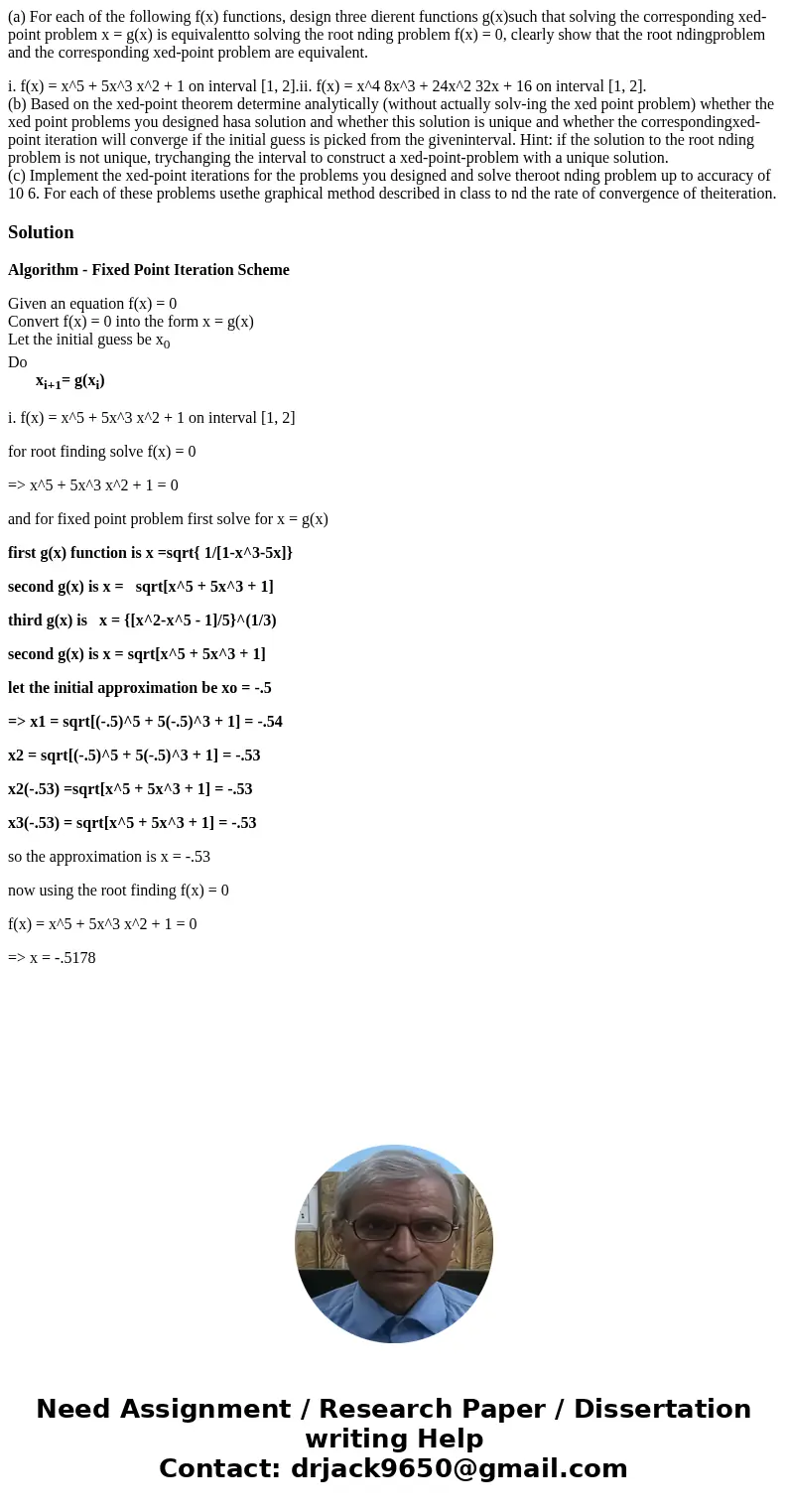a For each of the following fx functions design three dieren
(a) For each of the following f(x) functions, design three dierent functions g(x)such that solving the corresponding xed-point problem x = g(x) is equivalentto solving the root nding problem f(x) = 0, clearly show that the root ndingproblem and the corresponding xed-point problem are equivalent.
i. f(x) = x^5 + 5x^3 x^2 + 1 on interval [1, 2].ii. f(x) = x^4 8x^3 + 24x^2 32x + 16 on interval [1, 2].
(b) Based on the xed-point theorem determine analytically (without actually solv-ing the xed point problem) whether the xed point problems you designed hasa solution and whether this solution is unique and whether the correspondingxed-point iteration will converge if the initial guess is picked from the giveninterval. Hint: if the solution to the root nding problem is not unique, trychanging the interval to construct a xed-point-problem with a unique solution.
(c) Implement the xed-point iterations for the problems you designed and solve theroot nding problem up to accuracy of 10 6. For each of these problems usethe graphical method described in class to nd the rate of convergence of theiteration.
Solution
Algorithm - Fixed Point Iteration Scheme
Given an equation f(x) = 0
Convert f(x) = 0 into the form x = g(x)
Let the initial guess be x0
Do
xi+1= g(xi)
i. f(x) = x^5 + 5x^3 x^2 + 1 on interval [1, 2]
for root finding solve f(x) = 0
=> x^5 + 5x^3 x^2 + 1 = 0
and for fixed point problem first solve for x = g(x)
first g(x) function is x =sqrt{ 1/[1-x^3-5x]}
second g(x) is x = sqrt[x^5 + 5x^3 + 1]
third g(x) is x = {[x^2-x^5 - 1]/5}^(1/3)
second g(x) is x = sqrt[x^5 + 5x^3 + 1]
let the initial approximation be xo = -.5
=> x1 = sqrt[(-.5)^5 + 5(-.5)^3 + 1] = -.54
x2 = sqrt[(-.5)^5 + 5(-.5)^3 + 1] = -.53
x2(-.53) =sqrt[x^5 + 5x^3 + 1] = -.53
x3(-.53) = sqrt[x^5 + 5x^3 + 1] = -.53
so the approximation is x = -.53
now using the root finding f(x) = 0
f(x) = x^5 + 5x^3 x^2 + 1 = 0
=> x = -.5178

 Homework Sourse
Homework Sourse